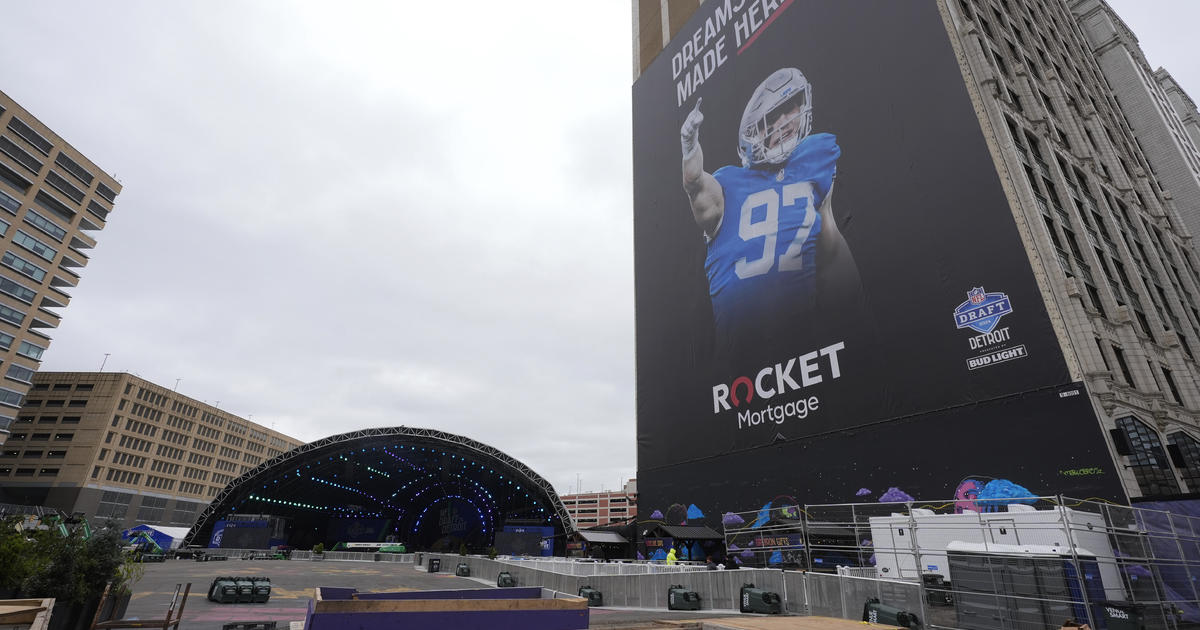Matt's Favorites: Ride Along On SpaceShipTwo, Driverless Car Tech, Hungry Fish Bite Bathers, And Much More
Hey, welcome back to the working week and your favorite newsletter, chronicling the tech-based economic redevelopment of our beloved Michigan. Ready to get going again? I know I am! Here goes...
* The Michigan Association of CPAs will sponsor a conference Jan. 23 called "Moving To The Cloud -- How And Why." The event gives CPAs, IT managers and business leaders an opportunity to learn more about cloud technology and how it can improve their organizations without additional cost or hardware. Nationally recognized expert Roy Keely, vice president of market strategy for Xcentric, will serve as the keynote speaker. The event begins with registration and networking at 7:30 a.m. and the program runs from 8:30 a.m. to 2:15 p.m. The venue is Schoolcraft College's VisTaTech Center, 18600 Haggerty Road in Livonia. Continuing professional education credits are avialable. The cost is $169 for MACPA members and $219 for non-members. Also, in a promotion, a second registrant on the same registration is $30 off. There are also optional afternoon sessions on "Windows 8 and Microsoft Office: A Hands-On Approach" from 2:20 to 3:35 p.m. or 3:45 to 5 p.m. at a price of $35, and "Virtual Practice Ethics Issues" from 2:30 to 3:20 p.m. at a price of $35 members and $50 for non-members. For more information, please contact the Michigan Association of CPAs CPE Department at (888) 877-4273 or cpe@michcpa.org.
* A stunning new video lets viewers ride along on last-week's record-breaking test flight of Virgin Galactic's suborbital spaceliner SpaceShipTwo.
* Hybridcars.com reports that Nissan's first production autonomous car could come to the United States by 2020. Really not all that far off, folks. It all depends on the laws and regulations, which apparently look favorable, at least in California, according to the report.
* And here's a look from CBS News on the brave new world of driverless vehicle technology -- which some industry observers that I respect, including WWJ's own Jeff Gilbert, remain really skeptical about.
* And speaking of car tech and the future, a new government report says that teenagers today just aren't driving as much as teens used to -- which could have huge implications for transportation and energy policy.
* Here's one invasive species I really, really hope never makes it to the Great Lakes -- large, piranha-like fish that are attacking bathers in Argentina.
* And here's another way I hope we're never, ever like China -- smog so thick that the city has resorted to plastering fake sunrises on illuminated billboards.
*Cyber security firm IntelCrawler said on Friday it has uncovered at least six ongoing attacks at merchants across the U.S. whose credit-card processing systems are infected with the same type of malicious software used to steal data from some 40 million credit cards at Target (TGT). And the United States is not alone in this problem -- a huge breach exposed personal information on 20 million people in South Korea.
* This week, the European Space Agency's Rosetta spacecraft will awaken after years spent in "sleep mode" on its way to rendezvous with and eventually catch a ride on a comet.
* After a decade of exploring the Martian surface, the scientists overseeing veteran rover Opportunity thought they'd seen it all. That was until a rock mysteriously "appeared" a few feet in front of the six wheeled rover a few days ago. News of the errant rock was announced by NASA Mars Exploration Rover lead scientist Steve Squyres of Cornell University at a special NASA Jet Propulsion Laboratory "10 years of roving Mars" event at the California Institute of Technology (Caltech), Pasadena, Calif., on Thursday night. The science star-studded public event was held in celebration of the decade since twin rovers Spirit and Opportunity landed on the Red Planet in January 2004.
* Time-shifting, streaming, and place-shifting have become a part of the modern television experience. All were pioneered by retail electronics products -- TiVo and the DVR in 1999, the Slingbox in 2005, and the Roku TV streamer in 2008. Over the past few years, we've seen televisions pile on and refine video features and the rise of cloud video services such as Aereo. But the three video pioneers are not just alive, they're expanding their businesses with new features and devices.
* One day a 3D printer, using a mix of materials, will be able to create body armor for U.S. soldiers that is more lightweight and stronger than anything could be made with traditional manufacturing and materials today. That's the word from researchers at the Lawrence Livermore National Laboratory, who are working to revolutionize 3D printing, as well as the way that companies build products ranging from jet engines and satellites to football helmets.
* In a court ruling that obviously has real impact on those of us who post news and opinion on the Web, a federal court has ruled that bloggers enjoy the same free speech protections as traditional journalists.
* In a landmark report on bushfires and climate change, the Australian Climate Council concludes that heat waves in Australia, as driven by climate change, are becoming more frequent — and that they get hotter.
* Politico reports 'Sen. Dianne Feinstein says she once found a drone peeking into the window of her home — the kind of cautionary tale she wants lawmakers to consider as they look at allowing commercial drone use. ... she used the episode to implore lawmakers to "proceed with caution."
* Slate reports on new anti-science education coming out of Texas. The state has a charter school system called Responsive Education Solutions, which is publicly funded. Unfortunately, 'it has been connected from its inception to the creationist movement and to far-right fundamentalists who seek to undermine the separation of church and state.'
* Brian Otis gingerly holds what looks like a typical contact lens on his index finger. Look closer. Sandwiched in this lens are two twinkling glitter-specks loaded with tens of thousands of miniaturized transistors. It's ringed with a hair-thin antenna. Together these remarkable miniature electronics can monitor glucose levels in tears of diabetics and then wirelessly transmit them to a handheld device.
* In the latest tit-for-tat in the escalating jockeying between carriers, Verizon has modified its Edge payment and early upgrade plan. Until now, customers had to wait six months to upgrade. Now they can do it after 30 days.
* Here's one way Intel can grow its tablet business: Intel is, in essence, paying tablet makers to adopt its Bay Trail Atom chips because it needs to catch up. However, Intel is also shrinking its workforce by 5 percent in the shadow of a shrinking PC market.
* Henrique De Castro has sailed away from Yahoo on one of the biggest golden parachute packages ever. And apart from that, his total compensation was reportedly larger than even Yahoo CEO Marissa Mayer's.
* Adobe Systems tipped its hand when it comes to the future of its Lightroom, revealing on its Web site a subscription plan for a mobile version of the software for editing and cataloging photos. 9to5 Mac spotted the subscription, a package costing $99 per year called "Adobe Lightroom for mobile."
* Ball lightning, a phenomenon in which a glowing orb of light persists for seconds after a lightning strike, is one of the most enduring atmospheric mysteries in science. Reported sightings date as far back as ancient Greece -- an occurrence of ball lightning is rumored to have killed 18th century scientist Georg Wilhelm Richmann -- and re-creating it synthetically has been a daunting feat, accomplished by only a few research teams after Nikola Tesla managed to first manifest spherical charges in the lab in 1904. Since then, little progress has been made toward concrete theories that can explain the strange, near-mystical nature of ball lightning. However, a group of Chinese scientists in 2012 managed, completely by accident, to not only observe and record an instance of it in Qinghai in western China, but to measure the contents of the orb with spectrographs. It marks the first time ever the phenomenon has ever been captured in nature.
* Investors have poured another $250 million in funding into cloud-storage company Dropbox, The Wall Street Journal reported Friday. With this latest round, the 7-year-old company is valued at $10 billion.
* Researchers from Duke revealed today that they had discovered nearly 5,900 gas leaks under the streets of Washington DC, including 12 that posed a serious risk of explosion. And it's not just Washington: a gas industry whistleblower who is part of the team showed this washappening in cities all over America.
* Previously, chemists have managed to create artificial cell walls and developed synthetic DNA to produce self-replicating, synthetic bacterial cells. Now, for the first time, researchers have used polymers to produce an artificial eukaryotic cell capable of undertaking multiple chemical reactions through working organelles.



